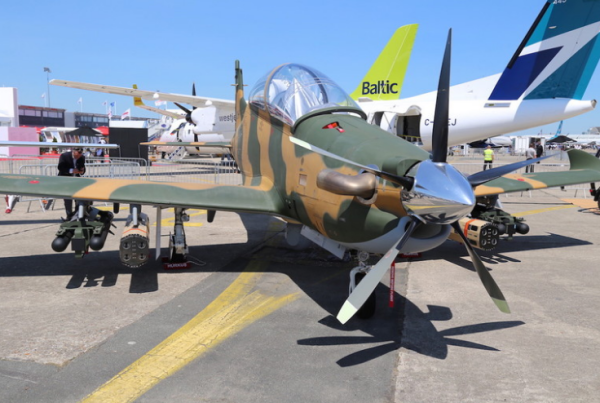TSAMTO, November 22. Niger became the first foreign customer of the Hurkus training aircraft manufactured by Turkish Aerospace Industries (TAI).
According to Defense News with reference to the presidential press service, on November 19, Turkish President Recep Tayyip Erdogan had a telephone conversation with Niger President Mohamed Bazoum, in which the purchase of Bayraktar TB2 unmanned aerial vehicles, Hurkus UTS and armored vehicles for the armed forces and special services was discussed.
The head of Turkish Aerospace Industries, Temel Kotil, first mentioned the first export contract for the Hurkus TCB during a TV interview on CNN Turk on November 11, 2021, without naming the customer. Then he said that the delivery of the first aircraft is scheduled in 6 months.
Officials do not disclose the number and exact modification of the supplied aircraft (T. Kotil stated in an April interview that the company is close to signing the first export contract for 12 Hurkus-C TCB).
The development of the Hurkus TCB line began in March 2006, when the Turkish Defense Industry Secretariat (SSM) signed a corresponding contract with TAI.
The roll-out of the prototype of the basic version of the Hurkus-A TCB took place in June 2012, and on August 29, 2013, it performed its first flight.
On December 26, 2013, the SSM secretariat signed a contract for the serial production of two more versions of the Hurkus TCB. The agreement provided for the production of 15 Hurkus-B units equipped with advanced avionics of the national company Aselsan. The contract contained an option to supply 40 additional TCB. The agreement also included the development of a conceptual design of an armed version of the Hurkus-C, designed for reconnaissance and aviation support.
Flight tests of the first Hurkus-B began in January 2018. The implementation of the Hurkus-C program began on November 28, 2016, and the prototype was demonstrated in February 2017 with UMTAS anti-tank guided missiles and Roketsan CIRIT laser-guided missiles. The Hurkus-C prototype performed the first launch of the L-UMTAS ATGM at a ground target on April 7, 2017.
Equipped with seven suspension points, the Hurkus-C can carry 1,500 kg of payload and use various nationally produced ammunition, including UMTAS ATGM, 70 mm CIRIT laser-guided missiles, KGK-SIHA-82 gliding bombs and free-falling bombs equipped with Teber laser guidance kits. In addition, the aircraft can carry free-falling bombs, 12.7-mm and 20-mm container weapons systems.

